June 5th, 2016 — 8:24am
Currently showing at Maison de la Culture in Vientiane, Laos.
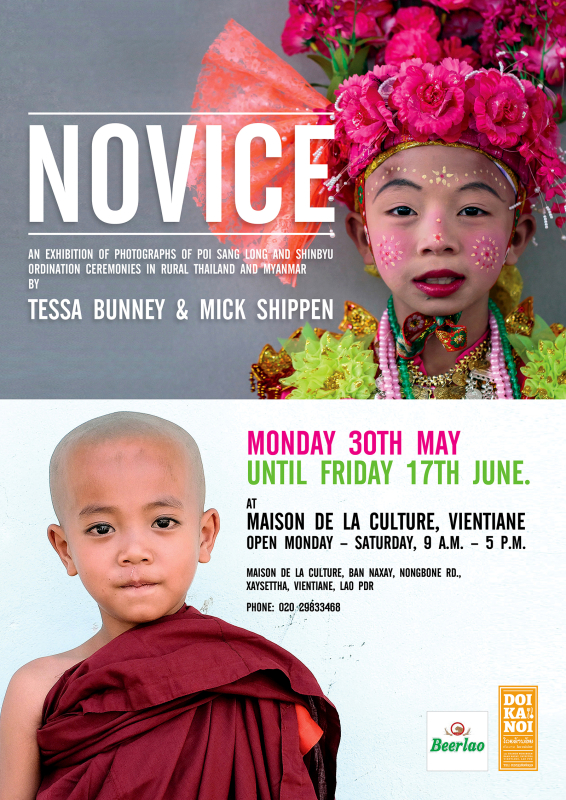
In early 2016, Tessa Bunney and I decided to work on a joint project and in March simultaneously travelled to Myanmar and Thailand to photograph the Buddhist ordination ceremonies to see the similarities and differences across borders. The result of our travels is Novice – Photographs of Poy Sang Long and Shinbyu Buddhist ordination ceremonies in rural Thailand and Myanmar.
Each year in March or April in Mae Hong Son province, the Shan people hold the colourful parades and ceremonies as part of Poy Sang Long. The events are held to ordain young boys into the monkhood and begins at a local temple with the ritual head shaving. For the following three days they are adorned with beautiful make-up, dressed in brightly coloured clothes, kept off the ground, and paraded through the town on the shoulders of relatives as sang long or precious gems.
The roots of the Shan, or Tai Yai as they are also known, are in Yunnan, China, from where they migrated into Myanmar. About 30,000 Shan live in Thailand, mainly in Mae Hong Son province which borders Myanmar and the Shan State. The fact that the area remained relatively isolated for many years has undoubtedly served to protect the Shan culture and give the area a unique ethnic flavour. The Shan are predominately Buddhist and their temples can be distinguished by the elaborately tiered roofs. Shan women also have a liking for tankha, a yellow face powder made from the bark of a tree, which is also used to beautify the young novices.
Our exhibition is on until June 18th at the Maison de la Culture.
The great Lao food at our opening night was prepared by Doi Ka Noi restaurant which is just five minutes’ walk from the exhibition. Tessa and I also have a few images on show there from our last exhibition.
https://www.facebook.com/DoiKaNoi/
Comment » | people, Travel
May 11th, 2015 — 7:35am
After the ubiquitous chillie, the most important ingredient in Lao cuisine is smoke.
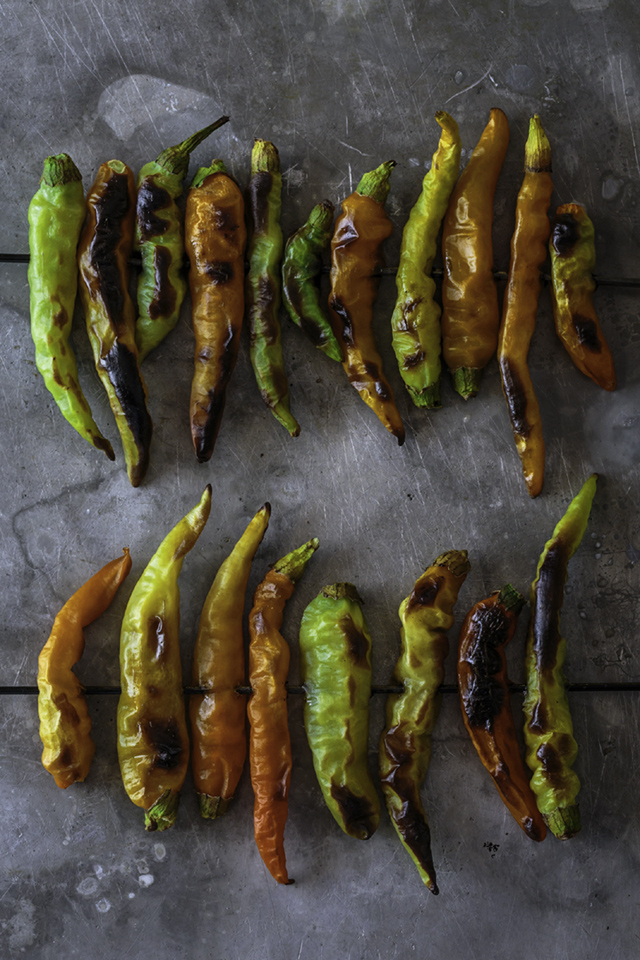
Combine the two and the result is culinary alchemy, infusing dishes with spice and deep charred flavours. Grilling over charcoal is an essential technique and is commonly used when preparing shallots, garlic, tomatoes, mushrooms, galangal, and lemongrass before adding them to jaew dips, soups and curries.
Comment » | food, places, Travel
May 7th, 2015 — 2:41am
Last night, the finalist exhibition of the Pink Lady Food Photographer of the Year 2015 was held at The Mall Galleries in London. Unfortunately I couldn’t attend this year’s prestigious event but I am pleased to say that I was awarded third prize in the Politics of Food category.
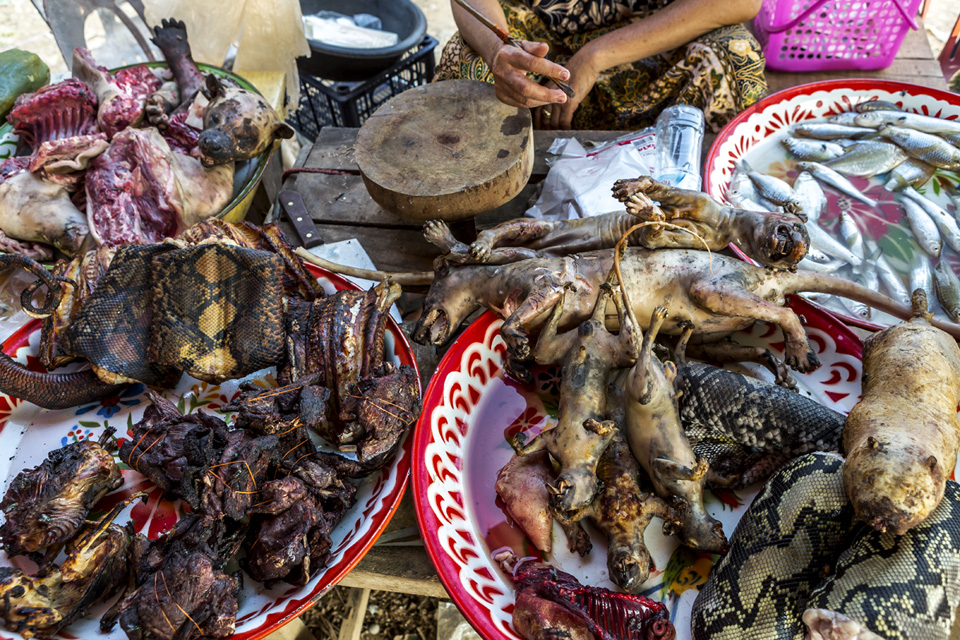
The prize-winning image above was taken in north west Laos and shows table of wild food openly onsale in the market. One of the first things you see when entering the airport at Vientiane is a huge sign about wildlife trafficking. Wild food always has been a part of the diet in Laos, especially with the rural communities of the north. Although a table of python, civet cat, bamboo rat and an assortment of other jungle creatures may look gruesome, the real issue is not local consumption but mass smuggling of anything that moves to feed the voracious appetite of China. Corruption and incompetence ensure that little is being done to address the problem.
I also had another image on show at The Mall Galleries in the Politics of Food category. The “Highly Commended” shot, “chickens on a bike” was taken in Yangon, Myanmar and shows the indifference to animal suffering that is frequently encountered in Asia.
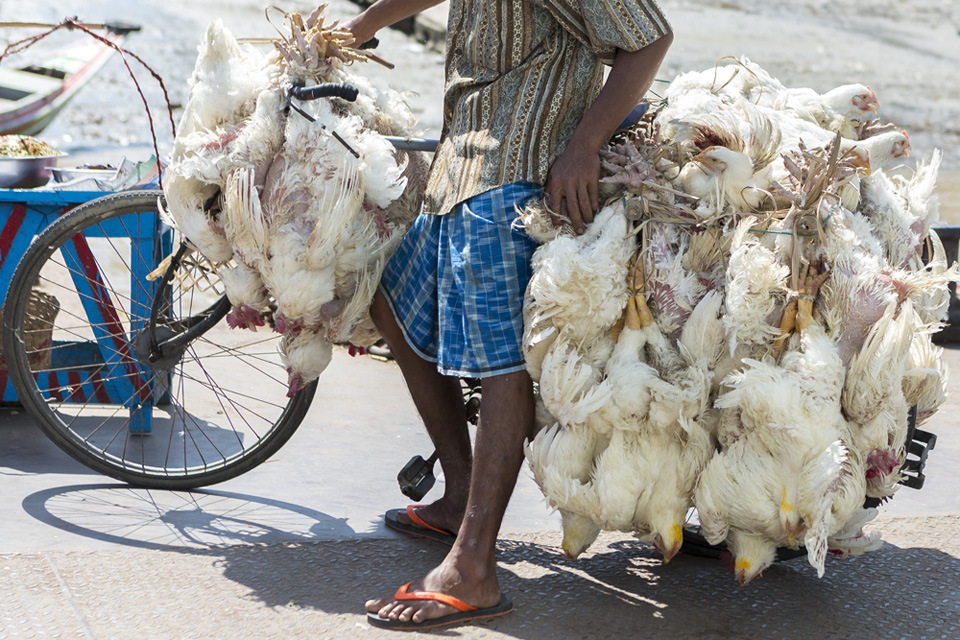
Shortlisted but not making it into the final selection were these “Commended” images:
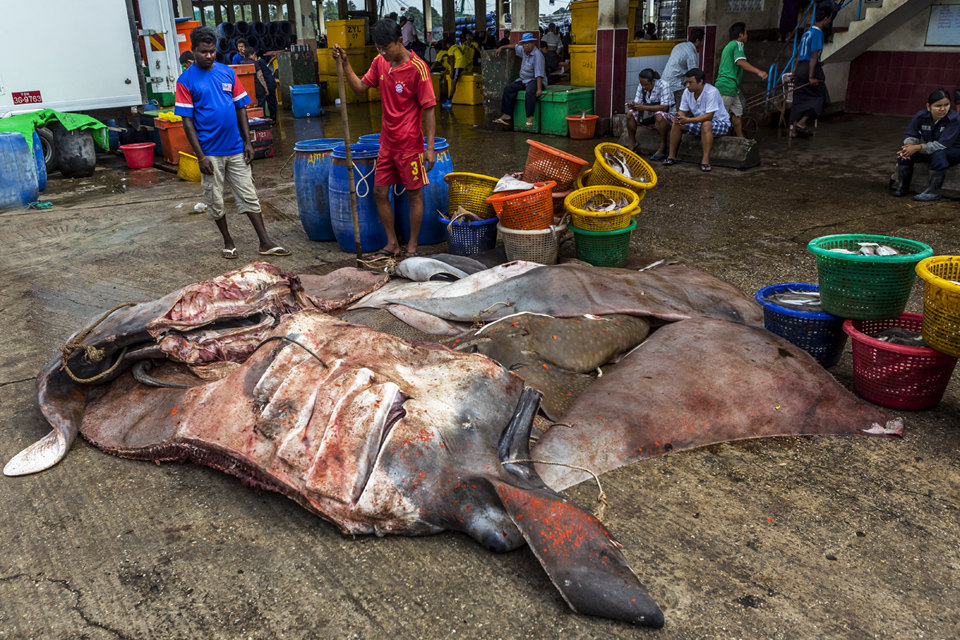
“Man versus manta ray” – an enormous ray cut up on a quayside in Myanmar which was in the Politics of Food category.
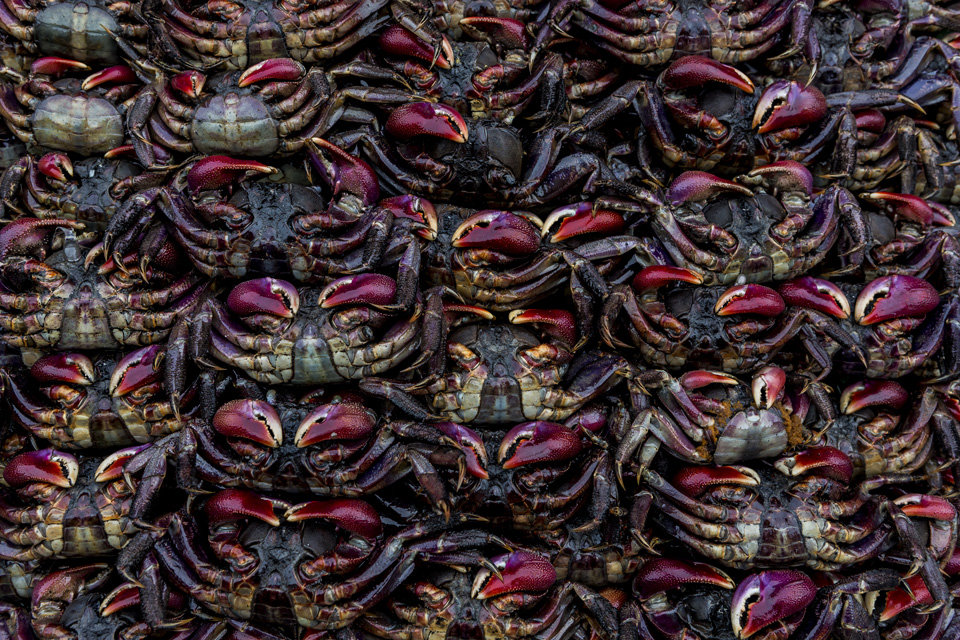
“Crabs for somtam”, an image taken in Phuket Town, Thailand was shortlisted for the Cream of the Crop category.

“Just one more spoonful” of a mother feeding her daughter in Kompong Cham morning market, Cambodia…
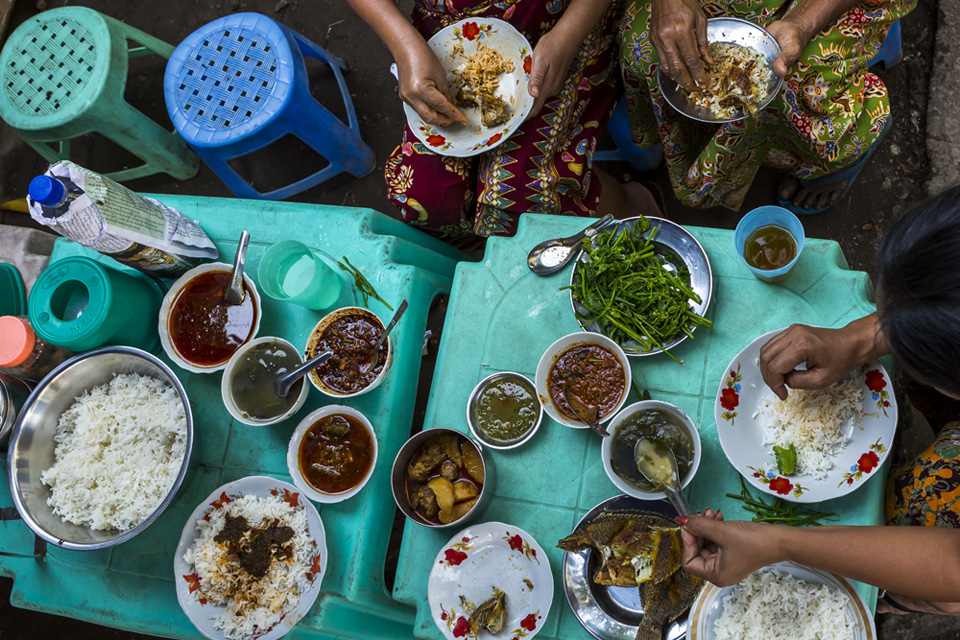
…and “street-side lunch” from Yangon, Myanmar – both from the Food for the Family category.
The above photographs and my extensive library of food and food culture images are available through my agency, StockFood.
You can see all the finalist images online here or can pop along to The Mall Galleries, just of Trafalgar Square in London. The exhibition is free and open to the public until the 10th of May.
Comment » | food, places, Travel
May 4th, 2015 — 5:28am
The bonus of doing a lot of food photography is that you get to eat your work. Last night’s home cooked trio of Lao dishes was so damn good that I cut the shoot short and dig in.
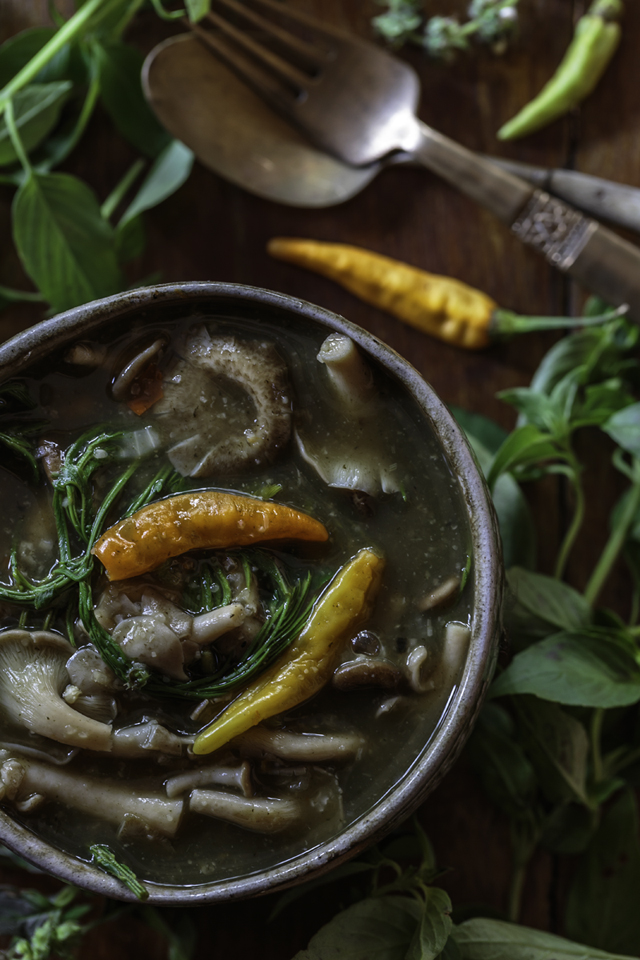
Gaeng het, a Lao-style mushroom curry is one of my all-time favourites. It is actually more of a stew than a curry and uses the ubiquitous pla daek fermented fish for flavour, cha om, the immature and rather pungent shoots of the acacia tree, handfuls of wild mushrooms, plenty of fresh chillies and herbs. It’s silky texture is obtained by adding soaked and pounded sticky rice to help thicken it. Cooked well, it’s a sensational dish.
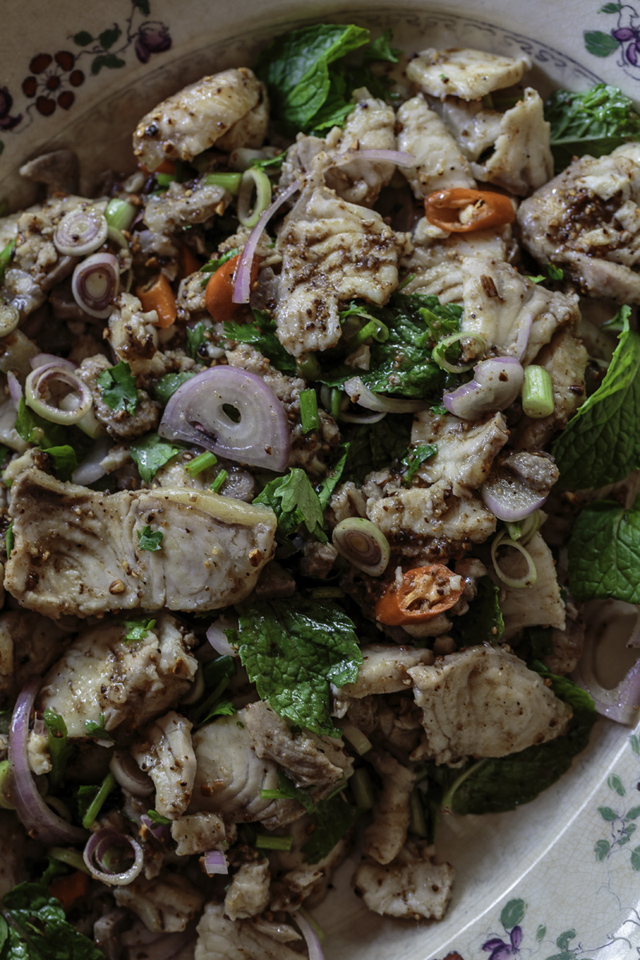
An ideal accompaniment is goy pla, similar to a larb, made using Mekong river fish, a liberal amount of mint, roasted and ground sticky rice, shallots, lemongrass, chillies and lime juice. Extra vegetables are always welcome at the Lao table. Ready in a couple of minutes, fresh and crisp pak choi stir-fried with oyster sauce, garlic and chillies is a great addition to a healthy and delicious meal.
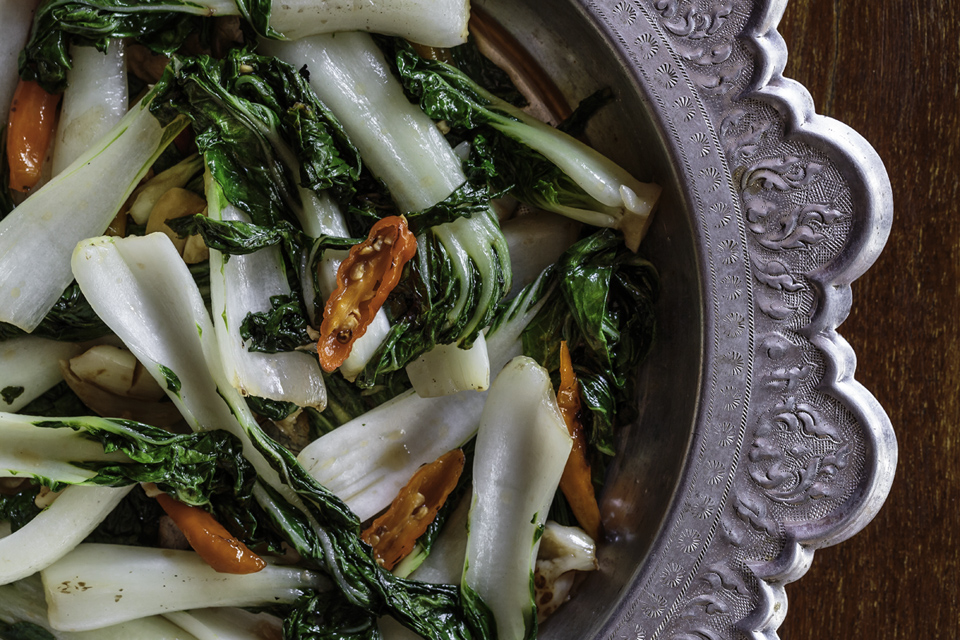
Comment » | food, places, Travel
April 1st, 2015 — 9:06am
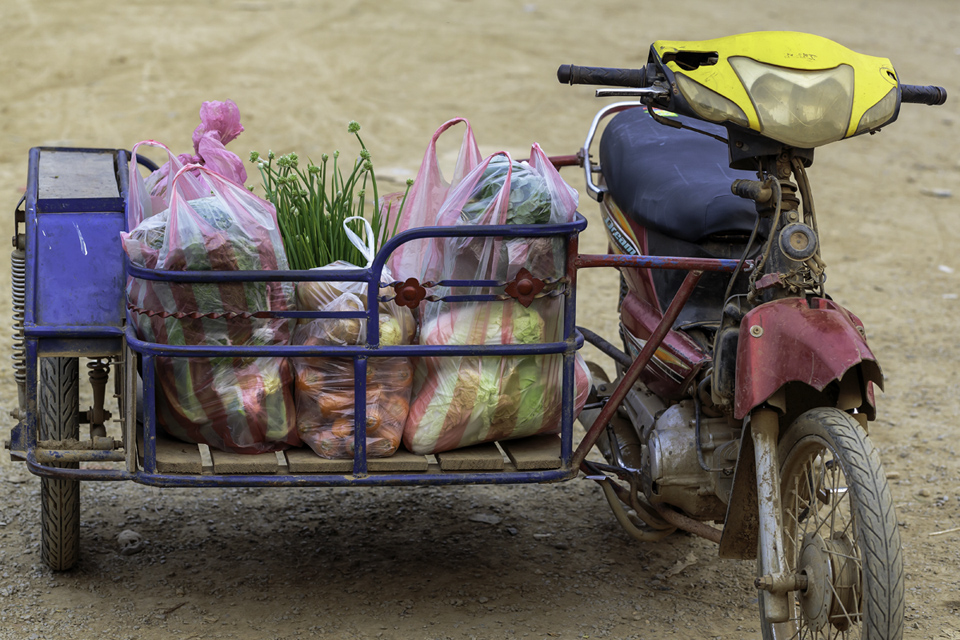
Here’s a quick quartet of quirky transport from markets in Laos.
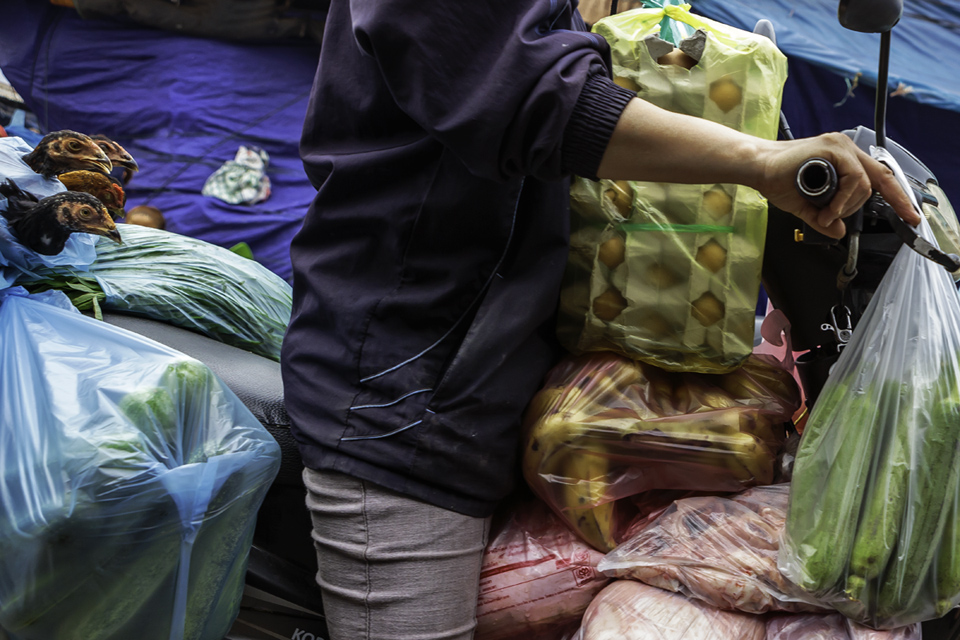
There is always a rare assortment of vehicles in various states of disrepair, laden with anything from fruits and vegetables to ducks, chickens and pigs.
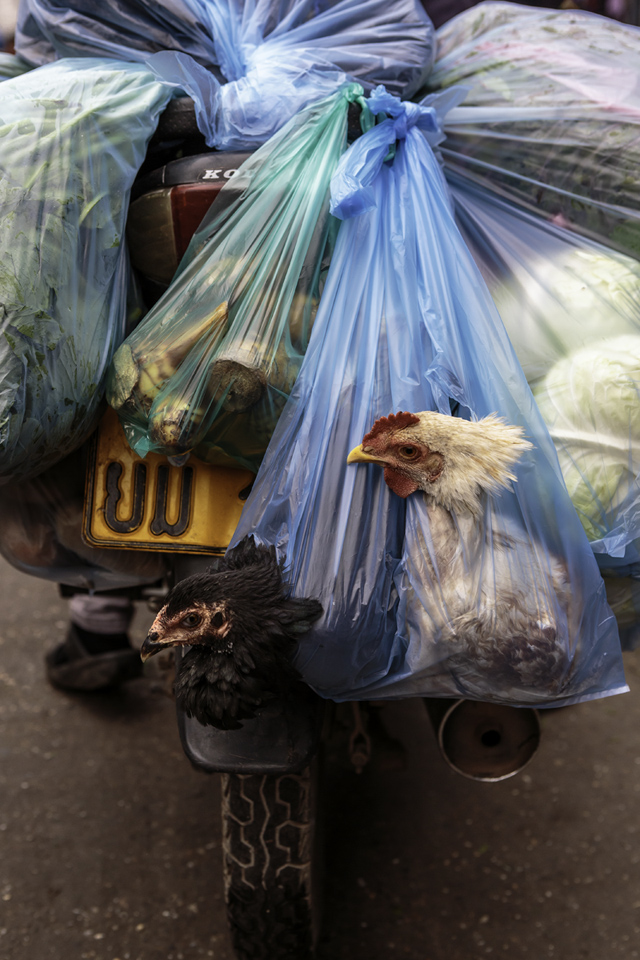
Whatever it is, it’ll fit on a motorcycle.
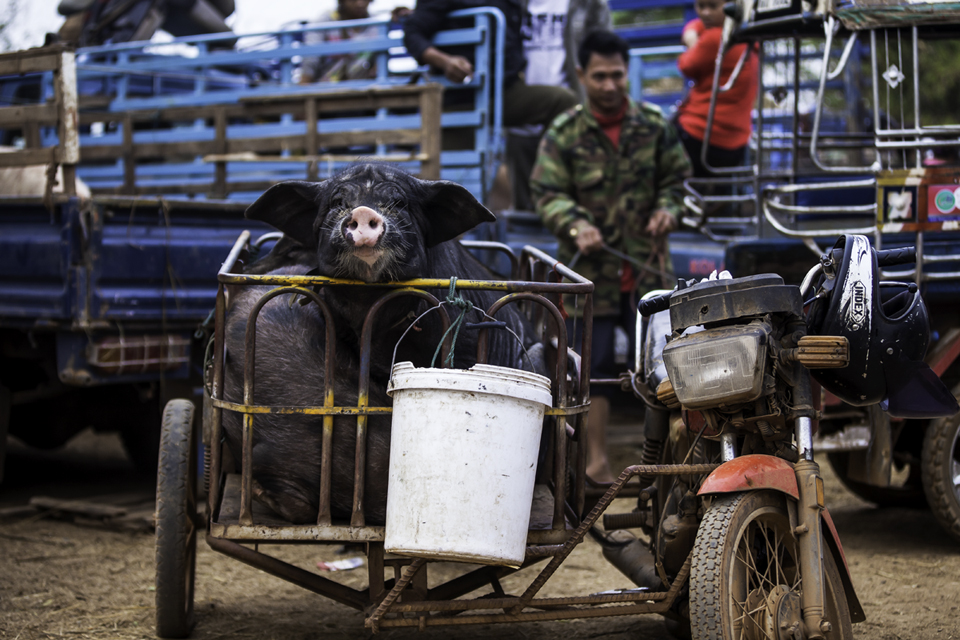
Comment » | food, places, Travel
February 16th, 2015 — 4:27am
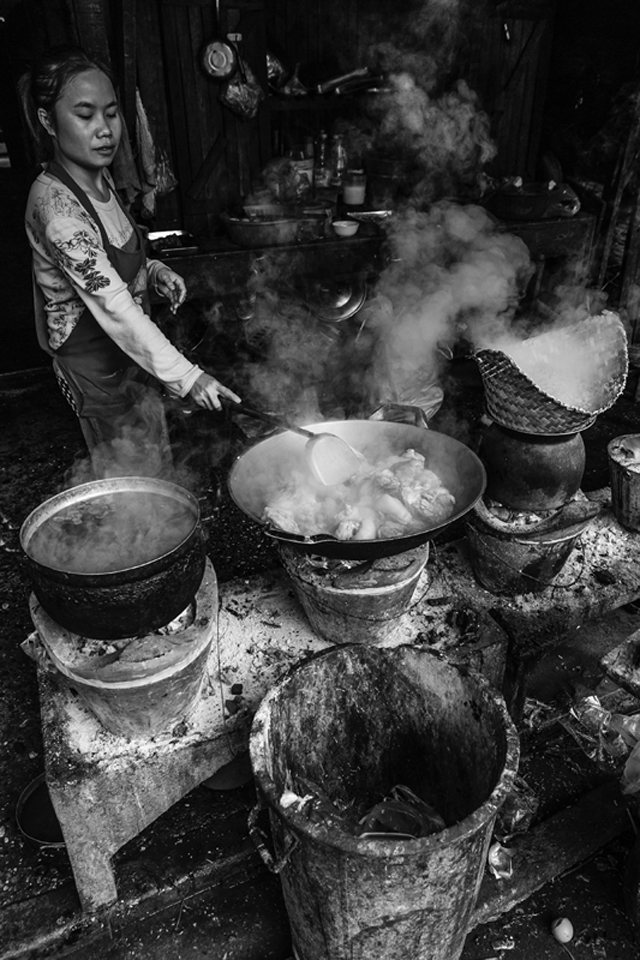
A woman cooking up breakfast dishes of pork, soup and sticky rice on three charcoal stoves in a morning market, Luang Prabang, Laos.
Comment » | food, places, Travel
January 27th, 2015 — 3:20am
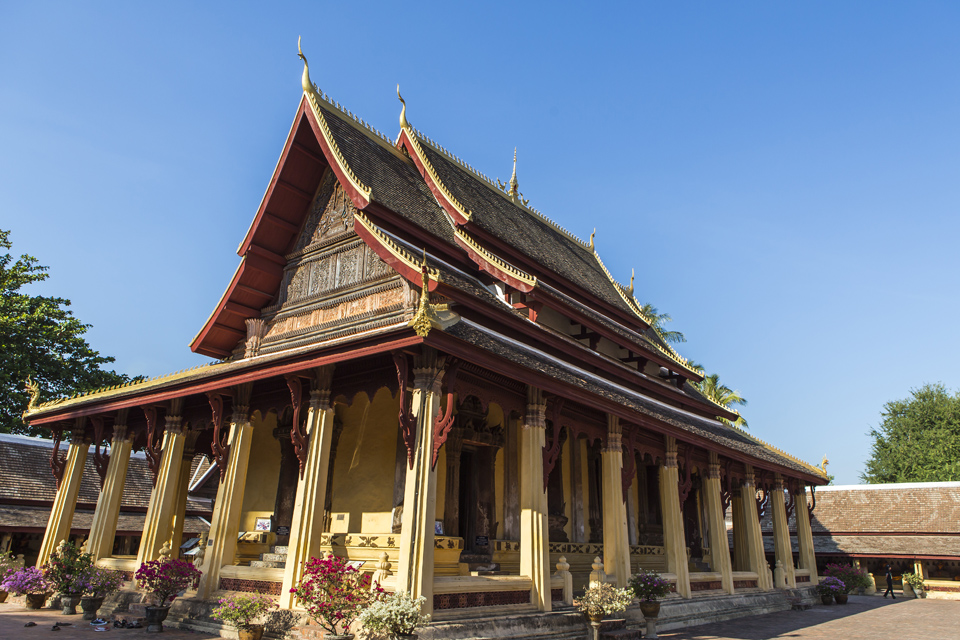
Over the past couple of years one of Vientiane’s most beautiful temples, Vat Si Saket, has been undergoing a steady process of renovation.
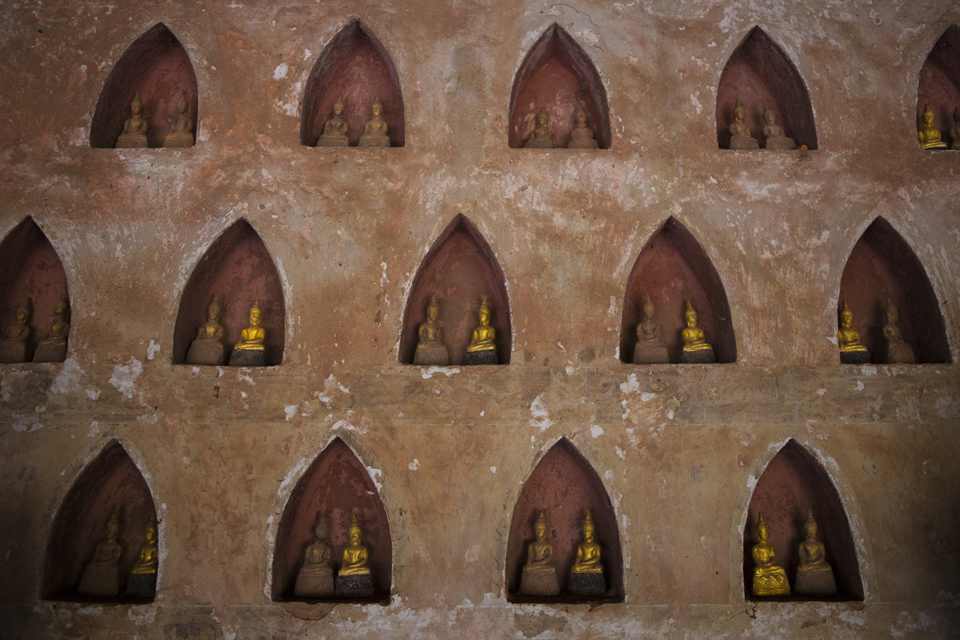
The roof of the cloisters have been retiled and now some of the inner walls are being painted. The image above is how they have looked for as long as I can remember. Below shows the work being done. I assume this is how they believe they were originally painted.

I’m not sure if the intention is to do all the walls. If it is, then it’s a mammoth task but should look stunning when completed.
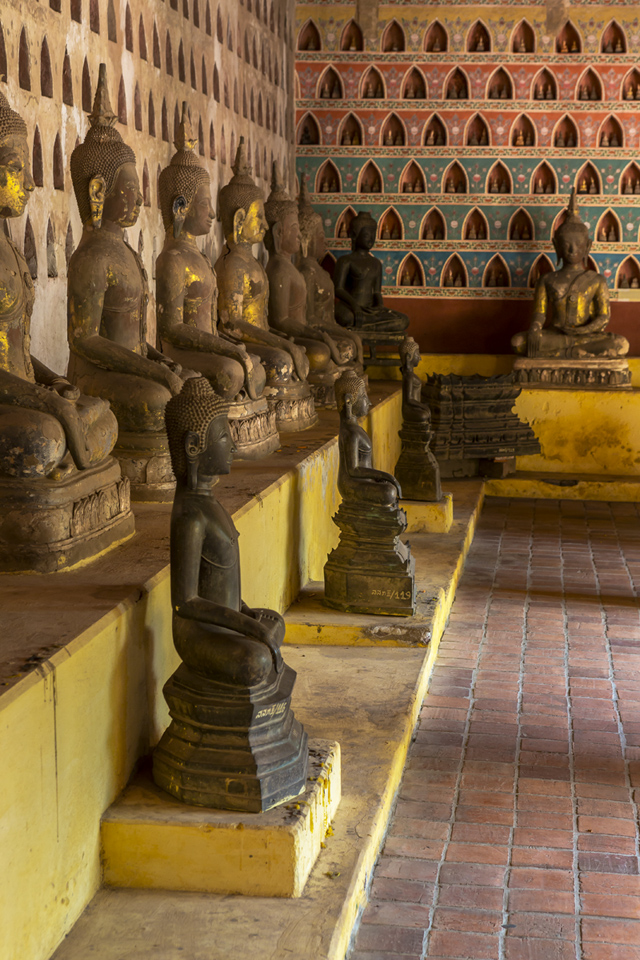
Vat Si Saket is one of the oldest and most atmospheric temples in Vientiane. It was built in 1818 and is one of the few to have survived an attack on Vientiane by the Siamese army a decade later.
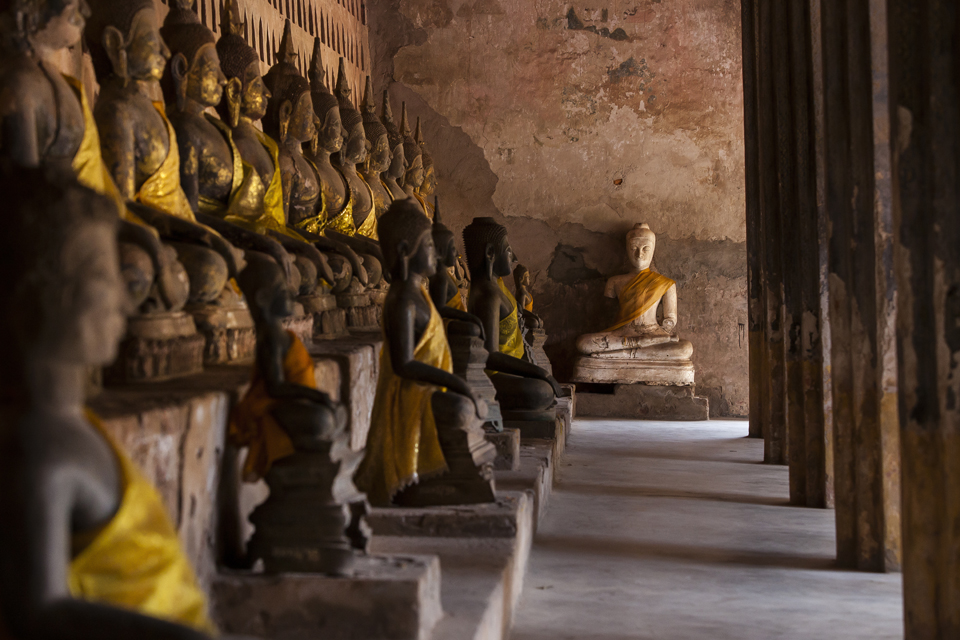
The temple’s central ‘sim’ or ordination hall is surrounded by a walled cloister. In addition to rows of large Buddha images, recesses in the cloister walls house 6,840 wooden and ceramic images.
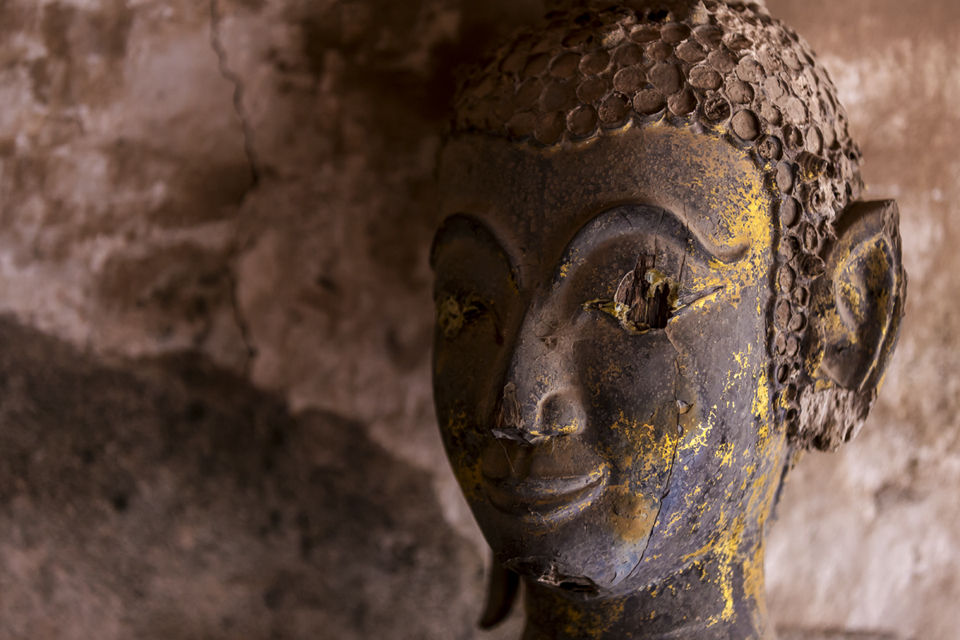
The temple is open daily from 8 a.m. – 12 p.m. and 1 p.m. – 4 p.m.
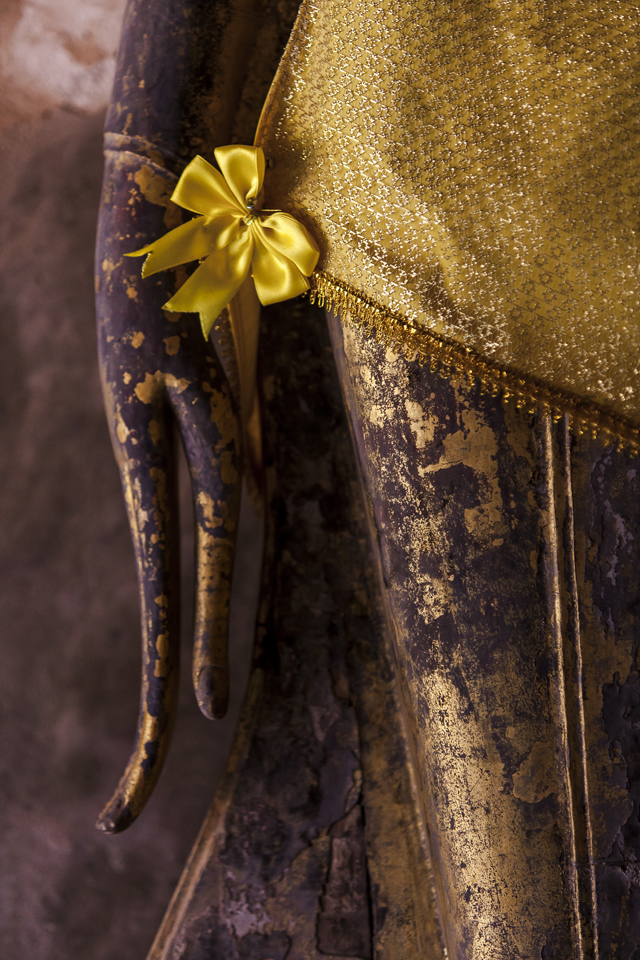
Comment » | places, Travel
December 24th, 2014 — 4:01am
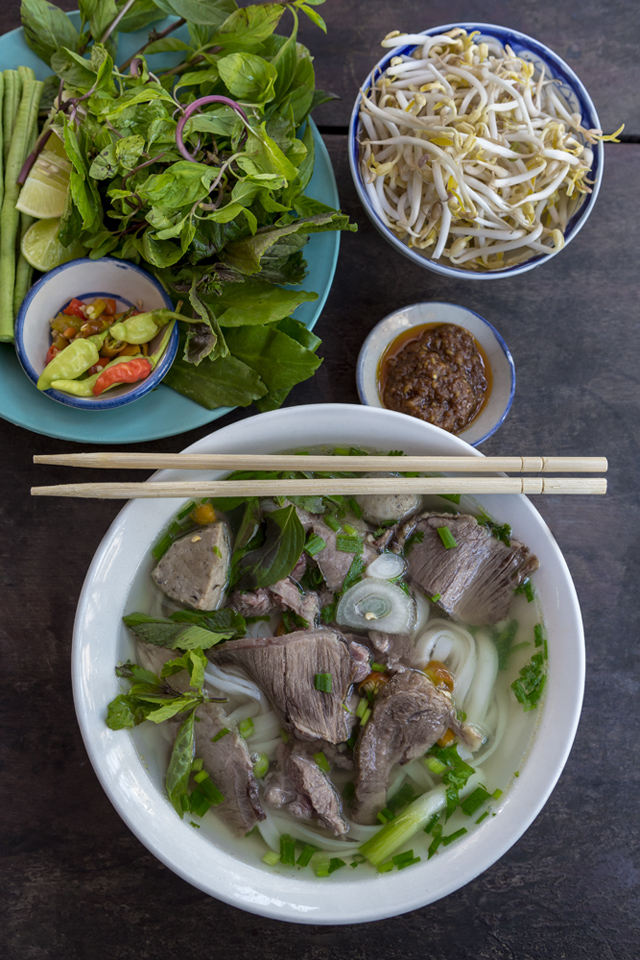
Here’s a quick one for lovers of pho. The Vietnamese dish is also a staple in Laos.
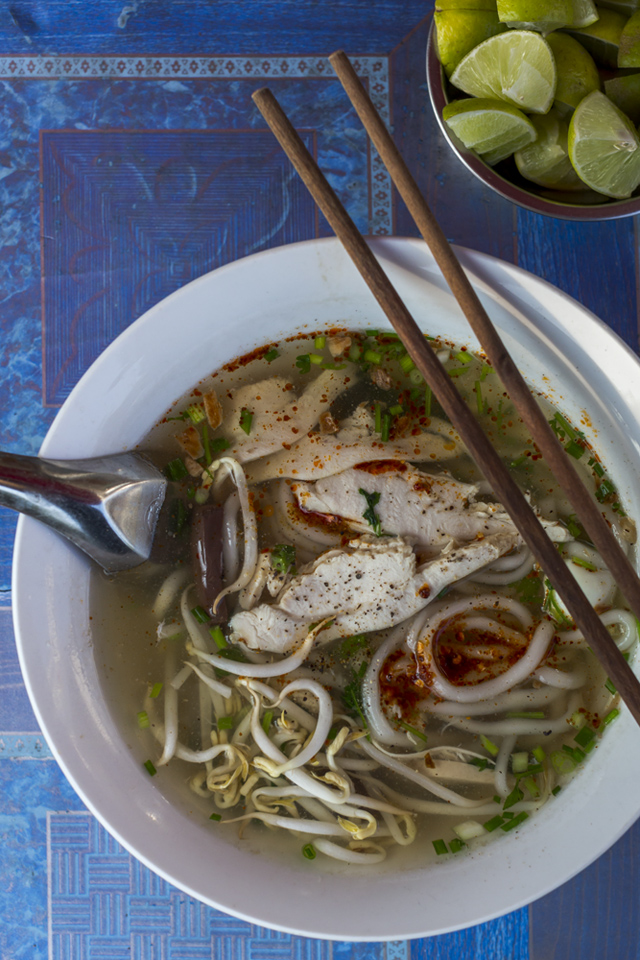
My favourite, however, is khao piek sen, a chewier noodle tossed in a tapioca flour which makes the soup a little more glutinous too. With the cool weather we’ve been having lately, it’s the perfect breakfast dish.
Comment » | food, places, Travel
December 3rd, 2014 — 2:49am
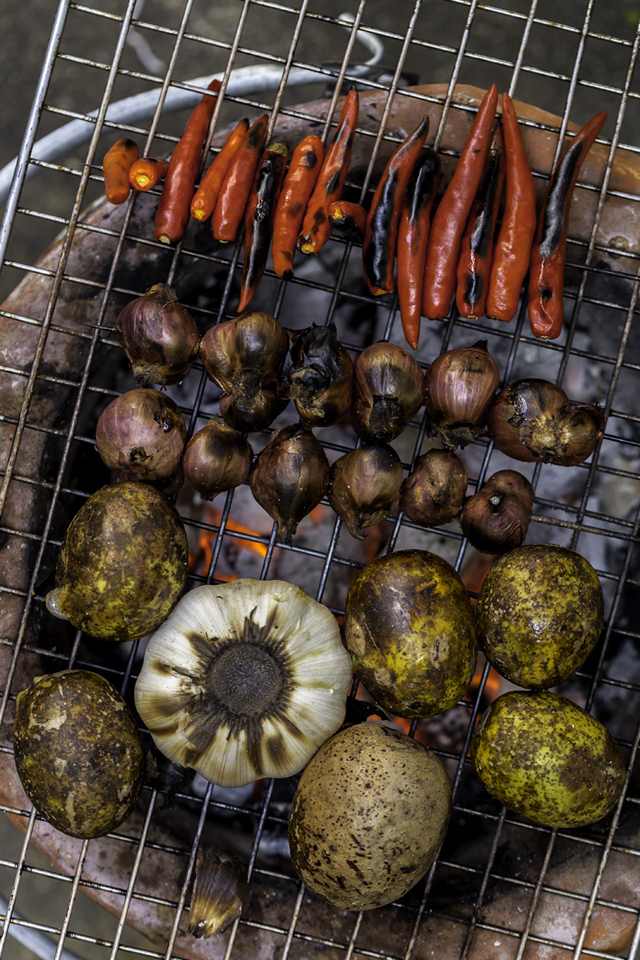
But then again…there’s jaew makok.
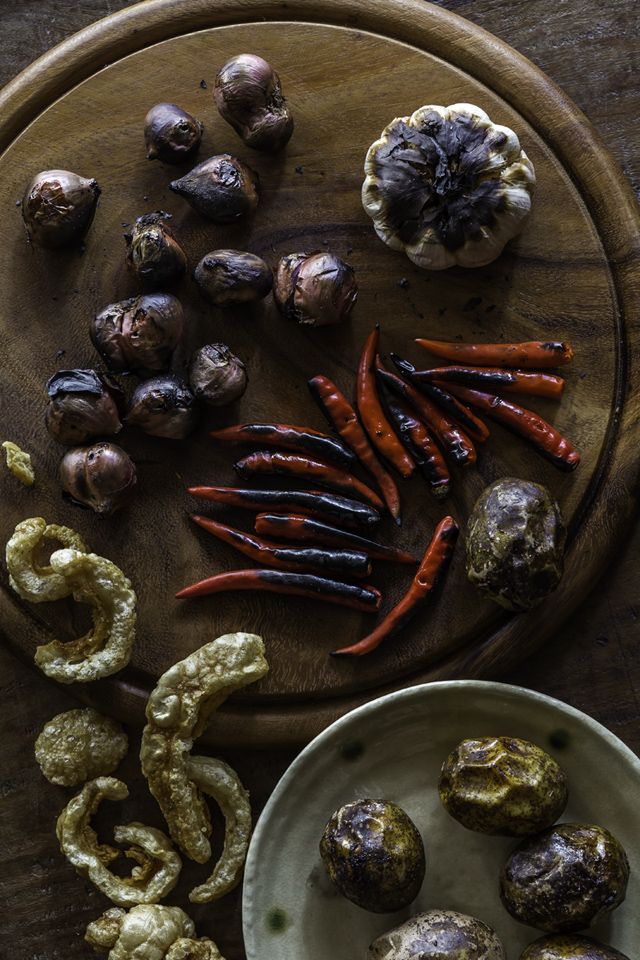
Makok, often referred to as a Lao/Thai olive, is the fruit from the spondia tree. The sour fruit is used in Issan somtam or tam mak hung in Lao. When grilled over charcoal the thin layer of pulp around the stone is also be used in a delicious jaew or dip, along with shallots, garlic, chillies and crispy pig skin. The young leaves of the tree are also eaten uncooked with many dishes.
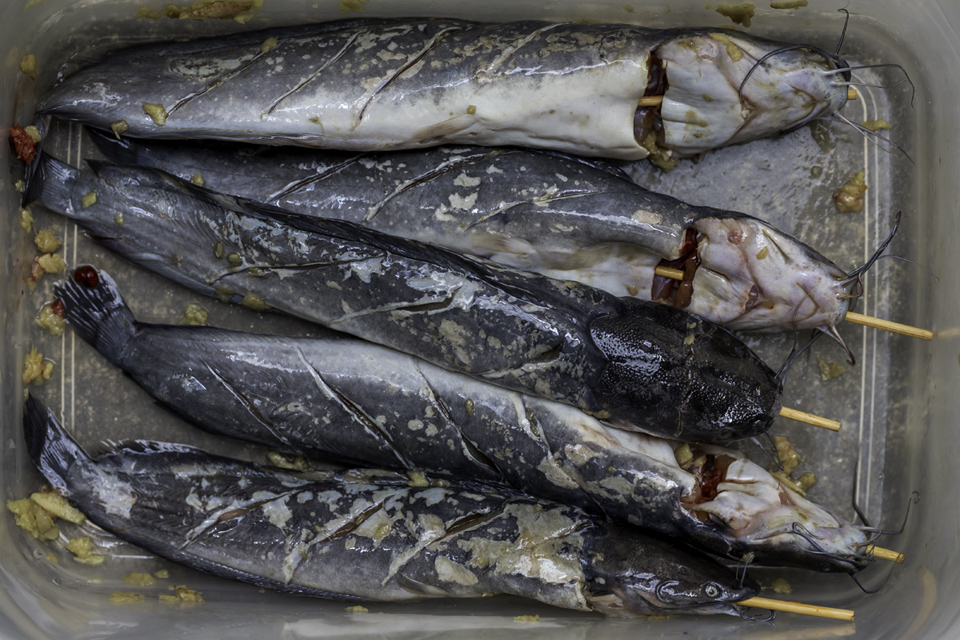
Jaew makok makes a great accompaniment with ginger marinated and grilled catfish.
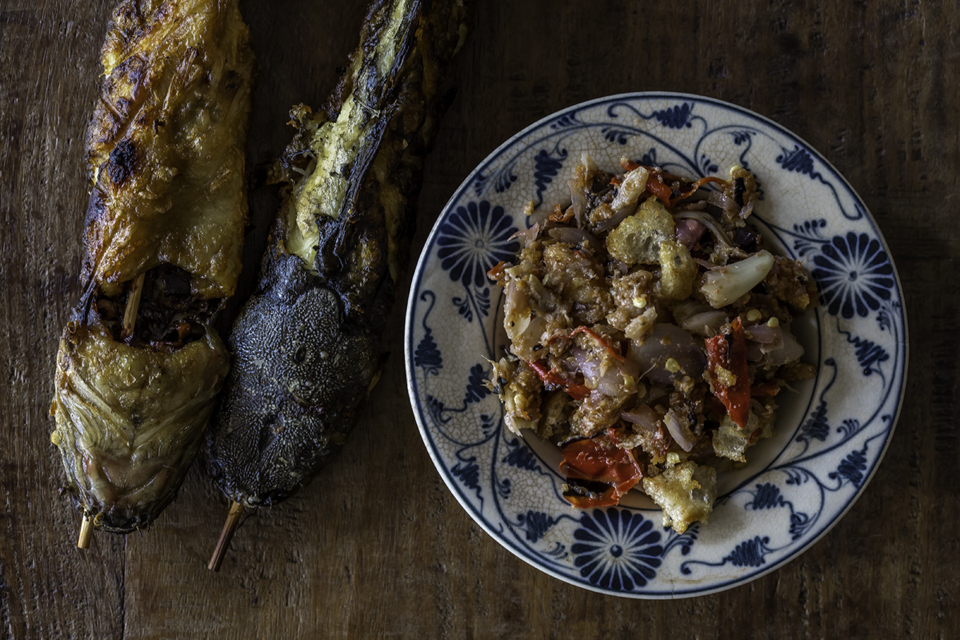
Comment » | food, places
December 2nd, 2014 — 5:49am

A Lao laab is a beautiful thing. One of my favourite dishes.
Comment » | food, places





























